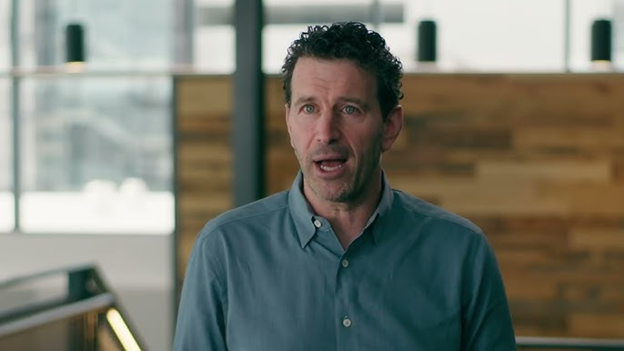What People Often Forget: 3 principles that can make or break your career and/or business!
For those of you who are not yet familiar with this, RDS is a pyramid-shaped framework with 11 tenets and 3 foundations. When applied properly, these principles help businesses attain high levels of performance. Today, we’ll take a deep dive into the framework’s first three tenets. Ready to know more? Keep reading below! |
|
What People Often Forget: 3 principles that can make or break your career and/or business! Some companies seem unstoppable—growing year after year, redefining industries, inspiring loyalty, and attracting top talent without breaking a sweat. Others? They crash spectacularly. … and when they do, it’s not subtle—it’s sudden, violent, and often leaves everyone wondering: “How could something that promising go so wrong?” Professor Joel Litman , Chairman and CEO of Valens Research and Chief Investment Officer of Altimetry Financial Research, has spent decades studying exactly that question. Through thousands of business cases, success stories, and cautionary tales, he helped craft Return Driven Strategy (RDS) —a powerful framework that shines a brutal light on what separates enduring success from inevitable failure. At the very heart of it all? Three core tenets that most companies (and careers) either honor or break at their peril.
Tenet 1: Ethically Maximize Wealth According to Professor Litman, if an organization cannot meet the first tenet, nothing else matters. Forget innovation. Forget research and development (R&D). Forget world-class hires. No amount of cleverness or talent can save a company that fails the ethical wealth test. Why? Because when major corporate disasters happen—the stock collapses, the brand reputations die—over 95% of the time, Litman and his team found the same root cause: gross unethical behavior. Not nuanced disagreements over business models or product philosophies. Not even tough-but-legal competitive practices. No. It came down to something much uglier: Outright lying, cheating, or stealing—directed at employees, customers, the public, or investors. Professor Litman says ethical wealth maximization isn’t about avoiding PR nightmares or looking good on paper. It’s about internal integrity being real , not performative. That’s why he challenges companies—and individuals—to redefine “wealth” beyond just financial returns. Wealth, he argues, also includes where you live, how you work, who you work with, and the kind of life you’re building. … and if you realize your personal or professional pursuits aren’t ethically aligned from the start? Stop right there. It’s better to do that and rethink your strategies instead of letting everything else become just stacked dominoes for a future collapse. Tenet 2: Fulfill Otherwise Unmet Customer Needs If ethics is the foundation, identifying unmet needs is the engine. According to Professor Litman, great companies don’t just make products or offer services; they solve problems that nobody else is solving, or they solve them better than anyone else. Astonishingly, this principle isn’t just about business strategy. Professor Litman recounts how MBA students, after learning RDS, flipped the model around and applied it to their own careers… and it worked beautifully! Think of your employer as your customer in this analogy. Just like customers, your employer pays you for value—specifically, for unmet needs being fulfilled. Professor Litman states that even an entry-level intern should be asking: “Am I doing something the company needs that they would struggle to find elsewhere?” This is not about competing with coworkers; it’s about recognizing the thousands of external candidates you beat to land your spot. Therefore, your job is to keep proving your employer made the right choice in hiring you. What else? Fulfilling unmet needs nowadays means thinking smarter and using every tool available, especially artificial intelligence (AI). In fact, Professor Litman is adamant: Leveraging AI is no longer optional for staying competitive. Whether you’re an analyst, a developer, a recruiter, or a junior staff member, AI supercharges your ability to meet needs faster, better, and more creatively. He compares AI’s impact to the early days of personal computers (PC) and the Internet — but even BIGGER. According to him, AI isn’t just changing workflows; it’s redefining what’s possible for both companies and individuals willing to harness it. Tenet 3: Target Appropriate Customer Groups After securing the foundation of ethics and aligning yourself to unmet needs, the next question is scale: “Are you aiming your efforts—your business, your career—towards markets that are expanding?” For Professor Litman, fulfilling a tiny, stagnant need isn’t enough. True momentum requires tapping into sectors, communities, or trends that are growing, evolving, and opening new doors. His insight? You don’t just want to build—you want to build in the right neighborhood. Professor Litman often reminds his teams and students: Mastering just the first three tenets of RDS unlocks the majority of the framework’s power. Yes, there are more chapters to read, more lessons to learn, but if you truly commit to these core ideas, you’re already miles ahead. … and at the deepest level, Professor Litman challenges everyone to define “wealth” not just by dollar signs, but by love , joy , and peace. Because without that, what’s the point? In a world obsessed with shortcuts and shiny distractions, Professor Litman's message cuts through the noise with profound clarity: Integrity is non-negotiable. Service is powerful. Growth is essential. Success may not be simple… but the rules that lead to it are. — If you’re looking to gain a better understanding of Return Driven Strategy and Career Driven Strategy, we highly recommend checking out “Driven” by Professor Litman and Dr. Frigo. Click here to get your copy and learn how this framework can help you in your business strategies and ultimately, in ethically maximizing wealth for your firm. Hope you found this week’s insights interesting and helpful.
Stay tuned for next Tuesday’s Return Driven Strategy! This company was once synonymous with innovation and was considered the undisputed leader of the semiconductor industry. Now, it’s in the midst of a tumultuous period in its 56-year history. Learn more about Intel’s potential comeback in next week’s article! |

Miles Everson
CEO of MBO Partners and former Global Advisory and Consulting CEO at PwC, Everson has worked with many of the world's largest and most prominent organizations, specializing in executive management. He helps companies balance growth, reduce risk, maximize return, and excel in strategic business priorities.
He is a sought-after public speaker and contributor and has been a case study for success from Harvard Business School.
Everson is a Certified Public Accountant, a member of the American Institute of Certified Public Accountants and Minnesota Society of Certified Public Accountants. He graduated from St. Cloud State University with a B.S. in Accounting.



